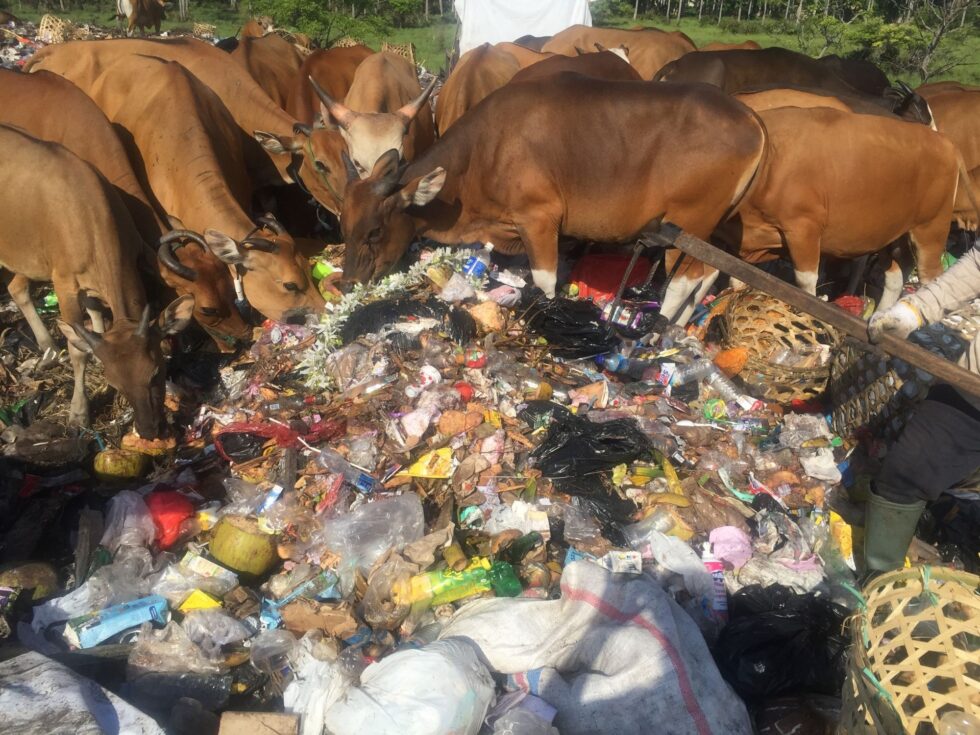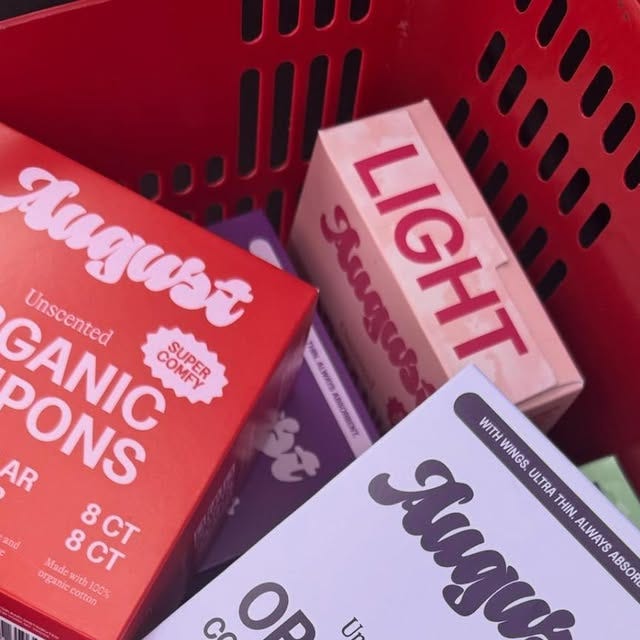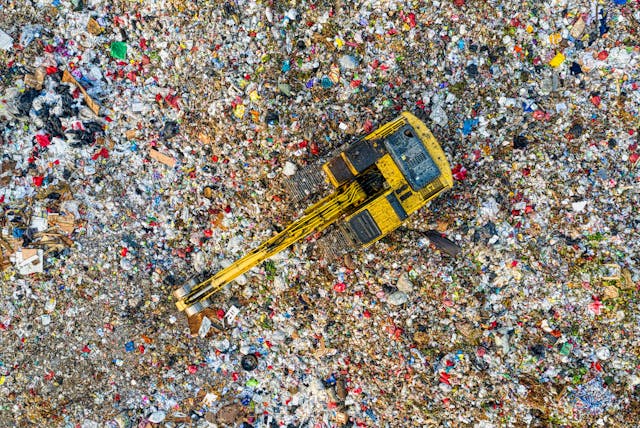The world has a plastic problem. The alarming global increase in plastic production from 2 million tonnes in 1950 to over 400 million tonnes in 2021 has created a crisis. Even as recycling initiatives increase, the reality is that less than 10% of plastic waste is recycled globally. Meanwhile, virgin plastics, which are made from fossil fuels, remain cheaper and more prevalent due to the economic and infrastructural challenges of recycling. This imbalance is a pressing issue with long-term environmental impacts, as the vast majority of single-use plastics bypass the recycling process, ultimately ending up in landfills, end of life via incineration, or polluting our ecosystems, instead of moving from our recycling bins to certified recycling facilities and back into the circular economy. The continuous production of virgin plastics poses one of the biggest challenges to increasing that recycling rate.
Understanding the Lifecycle of Plastics: From Production to Disposal
The lifecycle of plastic is complex, starting with the extraction of fossil fuels and progressing through production, use, and disposal. Each stage has significant environmental impacts:
1) Extraction and Production: Virgin plastic production begins with fossil fuel extraction, responsible for over 90% of the plastic in use today. This stage is resource-intensive, creating pollution that contributes to climate change.
2) Use Phase: Plastics are widely used across industries due to their durability and low cost. However, single-use applications account for a large share of global plastic production, contributing to significant waste.
3) Disposal and Recycling Challenges: Most plastic waste, including plastic bottles, still ends up in landfills or oceans instead of making it into a recycling bin. UNEP’s 2022 report notes that plastic recycling faces logistical and economic hurdles, with much of the material contaminated or of low quality. At present, only a small percentage is viable for recycling, leading to severe inefficiencies in the circular economy.
The Lifecycle of Plastics and the Economic Hurdles for Recycled Plastics
To understand why virgin plastics dominate, we need to look at the economic and structural factors involved in plastic production and recycling. Virgin plastics are produced directly from fossil fuels, which are relatively inexpensive, especially when oil prices are low. This straightforward process gives virgin plastics a competitive edge in cost and consistency, crucial for industries that require reliable quality in packaging, electronics, and more.
In contrast, recycling involves complex, multi-step processes that are both labour- and resource-intensive. Sorting, cleaning, and reprocessing different plastic types to meet consistent quality standards incurs additional costs. These challenges are apparent in our initiatives at Plastic Collective’s projects in Indonesia and Ghana, where extensive resources are needed for sorting and purifying plastic waste to create high-quality recycled pellets. For example, the Indonesian project alone requires multiple sorting stages followed by washing, crushing, de-watering, grinding, extrusion, and pelletisation. Though essential for producing usable recycled materials, this level of processing makes recycled plastics more expensive than virgin materials, presenting a significant hurdle in broad market adoption.
Virgin plastics are popular with manufacturers due to their uniform quality and lower cost. This easy availability undermines demand for recycled materials, creating a vicious cycle that discourages investment in recycling infrastructure. The result is a system where recycling is often less cost-effective than simply producing new plastic. This “cheaper but harmful” choice contributes to a larger environmental cost, as continuous virgin plastic production depletes resources and contributes to pollution.
The Problem with Virgin Plastics and Market Preferences
Virgin plastics remain the industry standard because they offer a stable, low-cost material with predictable quality. This quality consistency is highly valued in sectors that rely on precision in packaging, healthcare, and electronics. When oil prices fall, the cost advantage of virgin plastic increases, making it even more attractive compared to recycled options. The UNEP report highlights that approximately 90% of single-use plastics are made from virgin materials, which intensifies the plastic pollution crisis.
Relying on virgin materials also has a significant environmental impact. Virgin plastic production contributes to greenhouse gas emissions, and the extraction of fossil fuels necessary for virgin plastic could account for as much as 20% of global oil consumption by 2050 if current trends continue. This growing reliance on fossil fuel-based types of plastic is creating an urgent need for systemic change.
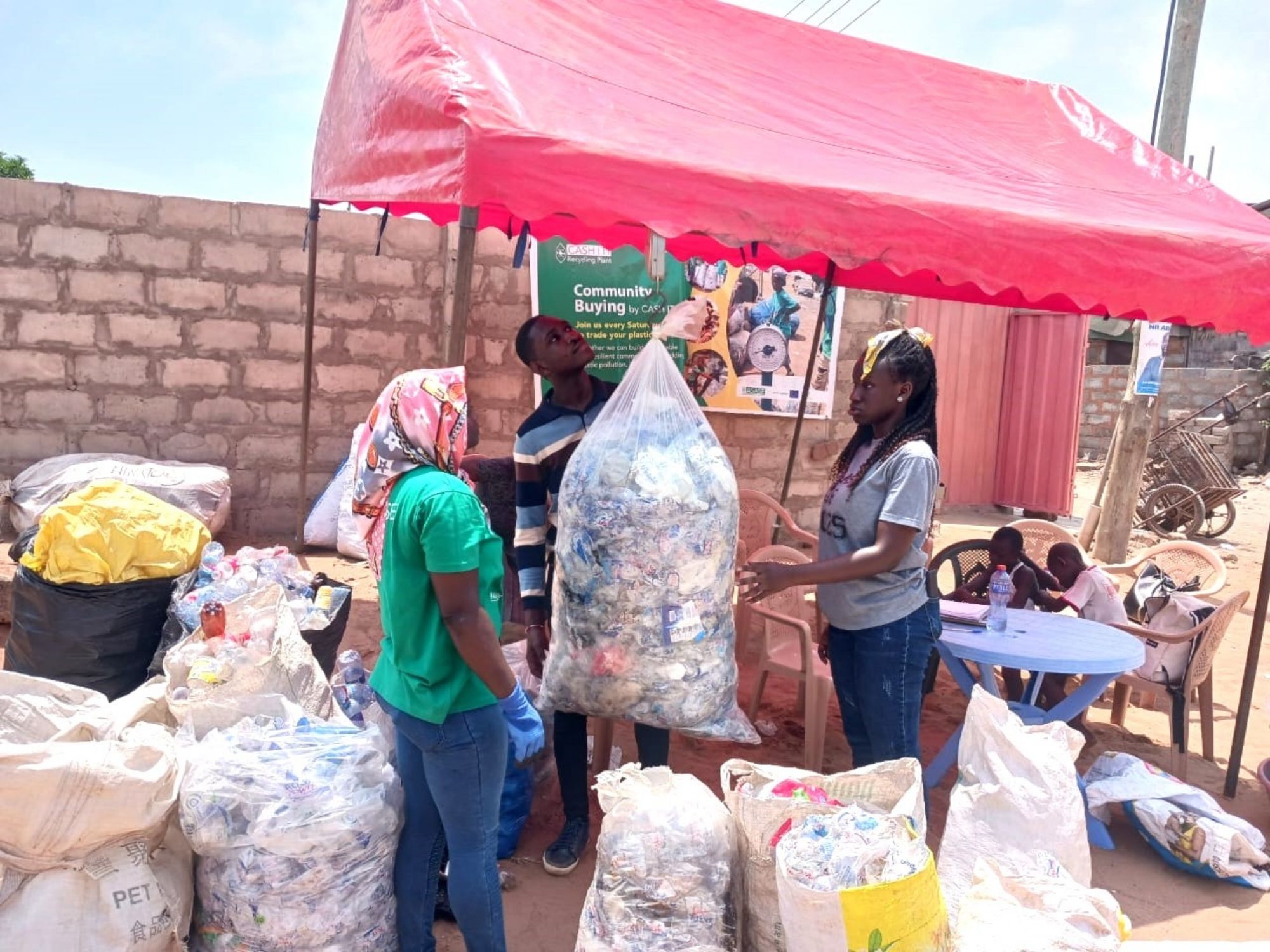
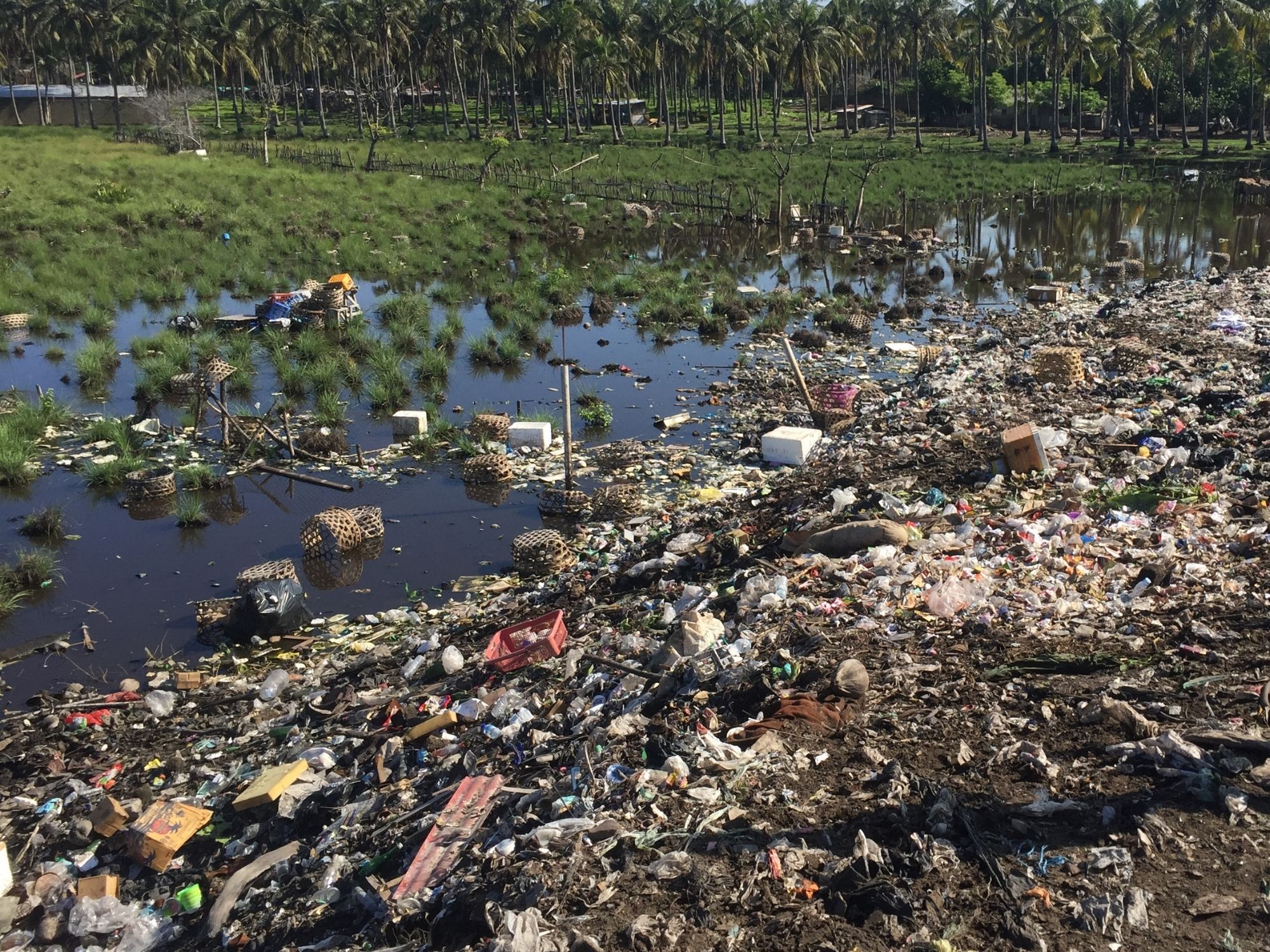
Regulatory Needs: Mandating Recycled Content in Plastics
So how can we boost recycling rates to prevent plastic pollution, reduce microplastics, and keep plastics from leaking into landfills and our ecosystems? Addressing virgin plastic dominance requires regulatory intervention. Some countries are taking the lead by mandating that new products contain a minimum percentage of recycled plastic, creating a built-in demand for recycled materials and helping stabilise this market.
In America, California for example, has implemented legislation requiring specific recycled content in plastic product products. Parts of the Europe have enacted similar mandates under the European union, encouraging companies to incorporate recycled materials by making it a regulatory requirement. These policies create a more predictable demand for recycled materials, helping make recycling projects financially viable at scale and incentivising companies to prioritise sustainable sourcing.
A more effective approach to plastic waste management must consider the entire lifecycle of plastics, from production and design to disposal. By increasing demand for recycled materials through regulatory measures, governments can counterbalance the allure of virgin plastics and contribute to a more circular economy that minimises waste.
Plastic Collective’s Role: Pioneering Sustainable Recycling Practices
Plastic Collective’s mission centres on empowering communities to create value from plastic waste. Our projects in Indonesia and Ghana demonstrate how locally managed recycling initiatives can address plastic waste and pollution at its source, while creating economic opportunities for community members.
In Indonesia, our recycling facilities train waste pickers to sort plastics by type (HDPE, LDPE, PET, PS, PP) and colour, creating higher-quality material streams with reduced contamination. After sorting, materials go through rigorous cleaning, crushing, grinding, and extrusion processes to produce high-grade recycled pellets. These pellets are then sold to manufacturers, creating a closed-loop system that directly benefits local economies and fosters sustainable practices.
Our recycling facilities in Ghana is tackling the dual challenges of low waste collection rates and high plastic pollution. By establishing small community-based recycling enterprises, we empower female entrepreneurs to drive local waste collection and processing efforts. This approach not only improves recycling rates but also addresses issues like plastic leakage into oceans, illustrating the power of community-centred solutions in creating impactful change.
Challenges and Next Steps: Building a Sustainable Plastic Economy
Plastic Collective’s projects reveal both the potential and the challenges of a truly circular economy for plastics. While community-based recycling models are effective, scaling them to a global level requires broader support. Without a more consistent demand for recycled plastics, through policies that mandate recycled content and encourage sustainable practices, virgin plastics will continue to dominate, undermining efforts toward sustainability.
By investing in local recycling infrastructure, advocating for stronger regulatory frameworks, and building demand for recycled materials, organisations, businesses, and governments can contribute to a future where recycled plastics are not just viable but the preferred choice. Plastic Collective remains committed to transforming the recycling landscape through innovative projects and partnerships that foster sustainable change, but achieving a global impact will take a collective, systemic shift toward a more circular economy.
The Road Ahead
The unchecked production of virgin plastics is not only limiting recycling but undermining the creation of a sustainable future. To create a truly circular economy, where plastics are continuously recycled and reused, we must address the economic factors that favour virgin materials. The current plastic economy heavily favours virgin plastic, undermining recycling efforts and hampering sustainability initiatives. Recycled content mandates and other regulatory policies are essential for levelling the playing field and promoting a circular economy where recycled plastics can compete with virgin materials. For brands and manufacturers, prioritising recycled content is a responsibility that goes beyond cost, it is a necessary step toward a sustainable future.
Through projects in Indonesia, Ghana, and other communities, Plastic Collective is proving that impactful recycling is possible when local systems are empowered and supported. Yet, without broad regulatory and market changes, the impact of these projects is limited. By supporting policies that mandate recycled content and advocating for brand accountability, we can collectively drive the shift towards a more sustainable plastic economy, one that values recycled materials and champions circularity over disposability.
By supporting policies and brands that promote recycled materials, we can pave the way for a more sustainable and balanced plastic economy. Let’s advocate for a future where recycled plastics can compete on equal footing, benefiting both the environment and the economy.
So next time you toss that plastic bottle or plastic bag in the recycling bin, consider this: would it be better to reuse it, or perhaps to avoid buying virgin plastic packaging in the first place? The plastic industry has a long way to go in building a truly circular economy, but each of us can take steps to reduce our reliance on single-use plastics
